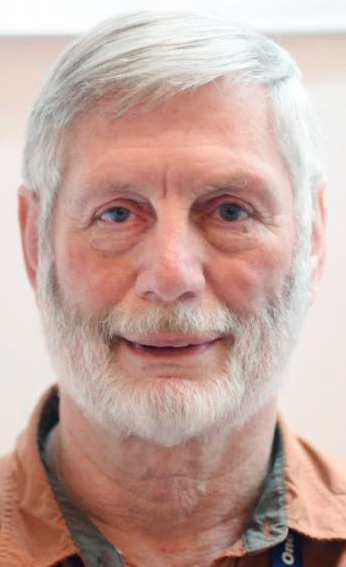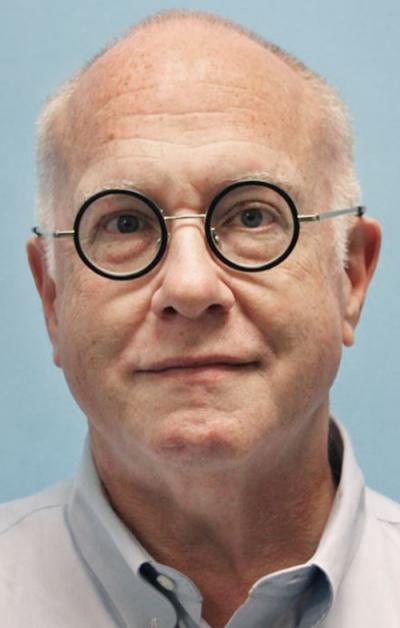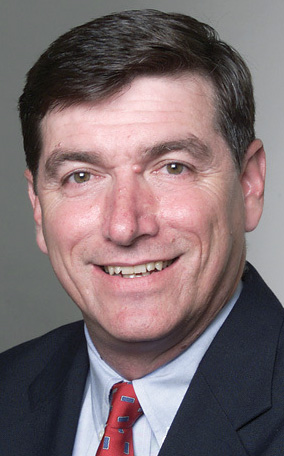

 As we embark on a new year and decade, it seemed worthwhile to take a peek at the principal forums for global 5G industry technical collaboration and do a quick assessment of what is occurring and who are the "leaders." The leadership dimension is especially relevant in Washington these days – which is suffering from a peculiar 5G dementia. As the year ended, there were no less than 35 current 5G related Congressional legislative actions, several of which actually passed one of the chambers. more
As we embark on a new year and decade, it seemed worthwhile to take a peek at the principal forums for global 5G industry technical collaboration and do a quick assessment of what is occurring and who are the "leaders." The leadership dimension is especially relevant in Washington these days – which is suffering from a peculiar 5G dementia. As the year ended, there were no less than 35 current 5G related Congressional legislative actions, several of which actually passed one of the chambers. more
 Vint Cerf has posted comments in support of the pending sale of PIR and the .org registry to Ethos Capital. Vint's Comments . Vint is a respected member of the Internet community, and his comments need close attention and careful assessment. Some of his comments have been discussed here earlier. Other comments, posted here and elsewhere, have either supported the sale or raised questions. more
Vint Cerf has posted comments in support of the pending sale of PIR and the .org registry to Ethos Capital. Vint's Comments . Vint is a respected member of the Internet community, and his comments need close attention and careful assessment. Some of his comments have been discussed here earlier. Other comments, posted here and elsewhere, have either supported the sale or raised questions. more
 Opensignal recently published a report that looks around the world at the quality of cellular video. Video has become a key part of the cellular experience as people are using cellphones for entertainment, and since social media and advertising have migrated to video. The use of cellular video is exploding. Netflix reports that 25% of its total streaming worldwide is sent to mobile devices. The new Disney+ app that was just launched got over 3 million downloads of their cellular app in just the first 24 hours. more
Opensignal recently published a report that looks around the world at the quality of cellular video. Video has become a key part of the cellular experience as people are using cellphones for entertainment, and since social media and advertising have migrated to video. The use of cellular video is exploding. Netflix reports that 25% of its total streaming worldwide is sent to mobile devices. The new Disney+ app that was just launched got over 3 million downloads of their cellular app in just the first 24 hours. more
 ICANN's Board will meet soon, perhaps even tomorrow, to discuss the dot-org domain sale. It is a pivotal inflection point in the history of Internet governance. When Internet Society (ISOC) was awarded the dot-org domain over ten other bids in 2002, evaluators voiced concerns about their ability to steward it. The report explains: Some on the Committee expressed concern, however, that ISOC's associations extend only to the networking/connectivity community and not to a broader base... more
ICANN's Board will meet soon, perhaps even tomorrow, to discuss the dot-org domain sale. It is a pivotal inflection point in the history of Internet governance. When Internet Society (ISOC) was awarded the dot-org domain over ten other bids in 2002, evaluators voiced concerns about their ability to steward it. The report explains: Some on the Committee expressed concern, however, that ISOC's associations extend only to the networking/connectivity community and not to a broader base... more
 Many of my friends in the civil-liberties and Internet-law communities have been criticizing the Internet Society's agreement to sell the Public Interest Registry, which administers the .ORG top-level domain. I'm a free-speech guy, so I support their right to raise all these criticisms. But they often ask me directly – knowing that my track record as an Internet civil-libertarian is longer than most – why as a member of the Internet Society (a.k.a. ISOC) board I decided to join the board's unanimous approval of the deal. more
Many of my friends in the civil-liberties and Internet-law communities have been criticizing the Internet Society's agreement to sell the Public Interest Registry, which administers the .ORG top-level domain. I'm a free-speech guy, so I support their right to raise all these criticisms. But they often ask me directly – knowing that my track record as an Internet civil-libertarian is longer than most – why as a member of the Internet Society (a.k.a. ISOC) board I decided to join the board's unanimous approval of the deal. more
 I posted reviews of important LEO-satellite Internet service developments during 2017 and 2018. I've been updating those posts during the years and have 16 new posts for 2019. In 2019 we saw four inciteful simulations, Leosat suspending operations and Amazon announcing the availability of a new ground station service and plans for a LEO constellation, progress in phased-array antennas but a lowering of expectations for inter-satellite laser links (ISLLs), new competition from China... more
I posted reviews of important LEO-satellite Internet service developments during 2017 and 2018. I've been updating those posts during the years and have 16 new posts for 2019. In 2019 we saw four inciteful simulations, Leosat suspending operations and Amazon announcing the availability of a new ground station service and plans for a LEO constellation, progress in phased-array antennas but a lowering of expectations for inter-satellite laser links (ISLLs), new competition from China... more
 As 2019 wrapped up, we took some time to reflect on some of the most impactful digital developments of the past decade and how they helped change our digital lives, including: the rise of mobile and tablet usage; the importance of mobile apps; the explosion of social media and online gaming; cloud computing; domain names, brand protection and the impact of GDP. Now that we've passed the New Year, it's time to look forward. more
As 2019 wrapped up, we took some time to reflect on some of the most impactful digital developments of the past decade and how they helped change our digital lives, including: the rise of mobile and tablet usage; the importance of mobile apps; the explosion of social media and online gaming; cloud computing; domain names, brand protection and the impact of GDP. Now that we've passed the New Year, it's time to look forward. more
 We respect the right of all parties who wish to express a point of view on the Internet Society's sale of Public Interest Registry ("PIR") to Ethos Capital. However, it's important those views are based on facts -- which has not always been the case. Some have expressed concern that for-profit ownership of .ORG will automatically mean .ORG prices will rise dramatically, or that .ORG's principles will change. more
We respect the right of all parties who wish to express a point of view on the Internet Society's sale of Public Interest Registry ("PIR") to Ethos Capital. However, it's important those views are based on facts -- which has not always been the case. Some have expressed concern that for-profit ownership of .ORG will automatically mean .ORG prices will rise dramatically, or that .ORG's principles will change. more
 There is a difference, of course, between asserting a claim that cannot possibly succeed in an administrative proceeding under the Uniform Domain Name Dispute Resolution Policy (UDRP) and being unprepared to prove a claim that may have merit with the right evidence. Still, there is also an overlapping similarity in that complainants are either shockingly unfamiliar with UDRP procedures and jurisprudence... more
There is a difference, of course, between asserting a claim that cannot possibly succeed in an administrative proceeding under the Uniform Domain Name Dispute Resolution Policy (UDRP) and being unprepared to prove a claim that may have merit with the right evidence. Still, there is also an overlapping similarity in that complainants are either shockingly unfamiliar with UDRP procedures and jurisprudence... more
 Usenet is 40 years old. Did we get it right, way back when? What could/should we have done differently, with the technology of the time and with what we should have known or could feasibly have learned? And what are the lessons for today? A few things were obviously right, even in retrospect. For the expected volume of communications and expected connectivity, a flooding algorithm was the only real choice. more
Usenet is 40 years old. Did we get it right, way back when? What could/should we have done differently, with the technology of the time and with what we should have known or could feasibly have learned? And what are the lessons for today? A few things were obviously right, even in retrospect. For the expected volume of communications and expected connectivity, a flooding algorithm was the only real choice. more
 I watch the controversy over the proposed sale of the .ORG domain with a mixture of bemusement and concern. Some in the ICANN community – mostly those who resent that the Internet ever became commercialized – oppose the sale of the Public Interest Registry to the for-profit company Ethos for $1.1 billion. The basis of their concern is that the domain for non-profits should be in the hands of a non-profit and that the new owners might increase the current $9.93 fee PIR charges for a domain. more
I watch the controversy over the proposed sale of the .ORG domain with a mixture of bemusement and concern. Some in the ICANN community – mostly those who resent that the Internet ever became commercialized – oppose the sale of the Public Interest Registry to the for-profit company Ethos for $1.1 billion. The basis of their concern is that the domain for non-profits should be in the hands of a non-profit and that the new owners might increase the current $9.93 fee PIR charges for a domain. more
 The beginning of a new decade is always an invitation to have a broader look into the future. What, in the next ten years, will happen in the Internet Governance Ecosystem? Will the 2020s see the usual swinging pendulum between more liberal and more restrictive Internet policies in an interconnected world? Or will we move towards a watershed? more
The beginning of a new decade is always an invitation to have a broader look into the future. What, in the next ten years, will happen in the Internet Governance Ecosystem? Will the 2020s see the usual swinging pendulum between more liberal and more restrictive Internet policies in an interconnected world? Or will we move towards a watershed? more
 Digital governance, like all governance, needs to be founded in guiding principles from which all policy making is derived. There are no more fundamental principles to guide our policy making than the Universal Declaration of Human Rights, (UDHR). This article is Part 2 of a series of articles exploring the application of the UDHR to rights issues in the cyberspaces of the Internet ecosystem. The previous article in the series explores the foundations of the UDHR. more
Digital governance, like all governance, needs to be founded in guiding principles from which all policy making is derived. There are no more fundamental principles to guide our policy making than the Universal Declaration of Human Rights, (UDHR). This article is Part 2 of a series of articles exploring the application of the UDHR to rights issues in the cyberspaces of the Internet ecosystem. The previous article in the series explores the foundations of the UDHR. more
 A few weeks, I attended a one-day conference at the Queensland University of Technology (QUT) at the occasion of the launch of their new $7.5 million Centre for Data Science. This laboratory is also the lead node of a new Australian Data Science Network, bringing together data science organizations from across the country. The new center aims to support data-led decisions across key areas like health, environment, business, government and society -- in short, data for the good. more
A few weeks, I attended a one-day conference at the Queensland University of Technology (QUT) at the occasion of the launch of their new $7.5 million Centre for Data Science. This laboratory is also the lead node of a new Australian Data Science Network, bringing together data science organizations from across the country. The new center aims to support data-led decisions across key areas like health, environment, business, government and society -- in short, data for the good. more
 The .ORG sale has placed Maureen Hilyard – ICANN's At-large Chair – squarely between the largest outpouring of individual user sentiment that the Internet community has ever seen, and the people who can do something about it. For At-large, the stakes are high. ICANN has spent years building up a user organization to balance corporate and government interests. At-large could be a key bulwark against the capture of Internet resources by those with capital and political power. more
The .ORG sale has placed Maureen Hilyard – ICANN's At-large Chair – squarely between the largest outpouring of individual user sentiment that the Internet community has ever seen, and the people who can do something about it. For At-large, the stakes are high. ICANN has spent years building up a user organization to balance corporate and government interests. At-large could be a key bulwark against the capture of Internet resources by those with capital and political power. more
Sponsored byRadix

Sponsored byWhoisXML API

Sponsored byVerisign

Sponsored byDNIB.com

Sponsored byVerisign

Sponsored byIPv4.Global

Sponsored byCSC
